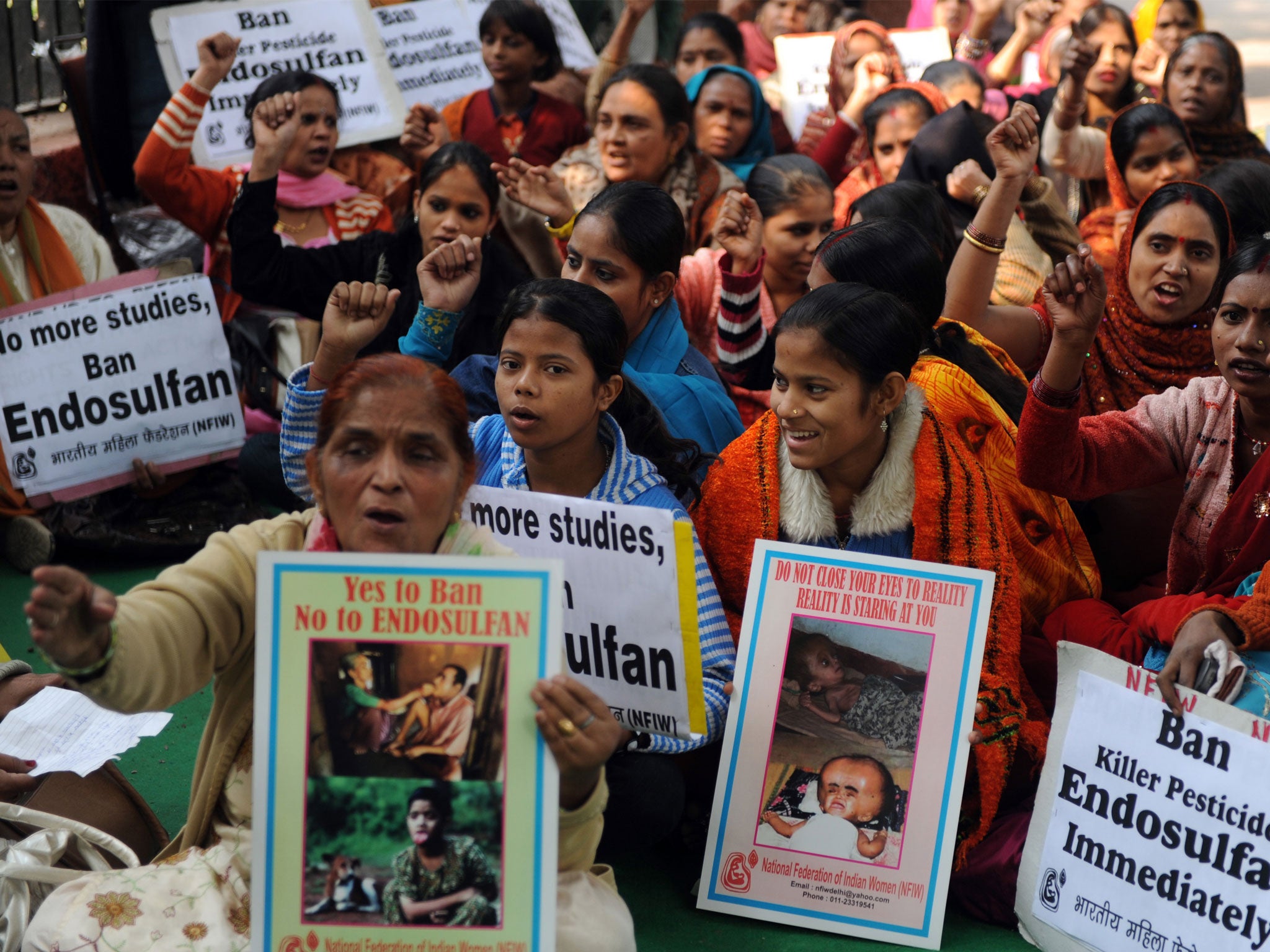Thirteen Bangladeshi children died from controversial insecticide only recently banned by US
Case highlights stark differences in safety regulations on either side of the Atlantic as British negotiators seek trade deal with US

Your support helps us to tell the story
From reproductive rights to climate change to Big Tech, The Independent is on the ground when the story is developing. Whether it's investigating the financials of Elon Musk's pro-Trump PAC or producing our latest documentary, 'The A Word', which shines a light on the American women fighting for reproductive rights, we know how important it is to parse out the facts from the messaging.
At such a critical moment in US history, we need reporters on the ground. Your donation allows us to keep sending journalists to speak to both sides of the story.
The Independent is trusted by Americans across the entire political spectrum. And unlike many other quality news outlets, we choose not to lock Americans out of our reporting and analysis with paywalls. We believe quality journalism should be available to everyone, paid for by those who can afford it.
Your support makes all the difference.A controversial insecticide blamed for the deaths of 13 Bangladeshi children was only banned in the US last year despite being blocked by the EU more than a decade earlier, highlighting the stark differences in safety regulations on either side of the Atlantic.
Researchers at the American Journal of Tropical Medicine found a direct link between the use of endosulfan and the deaths in Bangladesh in 2012.
The children died of acute encephalitis syndrome (AES) after coming into contact with powerful pesticides and fungicides sprayed on lychee orchards in the region.
Endosulfan, an organochlorine insecticide, is banned due to its health effects in more than 80 countries.
The EU moved to outlaw use of the endosulfan in 2005, while the US waited until 2016 to ban the substance.
The new study, which involved experts at the US Centres for Disease Control and Prevention, looked at the deaths of the children aged between one and 12 years old in northern Bangladesh.
Lead author of the study Saiful Islam, an associate scientist at the International Centre for Diarrheal Disease Research in Bangladesh, said the deaths “were most likely due to an exposure to multiple, highly toxic agrochemicals”.
The report comes as environmentalists warned about the prospect of British negotiators watering down food standards in order to secure a quick trade deal with the US.
A report by a House of Lords committee warned Theresa May not to slash food regulations in order to appease Washington in any future arrangement, saying it could lead to a “race to the bottom for welfare standards”.
In particular, chlorine-washed chicken, hormone-treated beef and genetically modified foods, which are permitted in the US, have sparked concern.
Environmentalists warn Britain may be forced to accept lower quality products, including the use of banned flavourings and increased pesticides.
But the International Trade Secretary, Liam Fox, who was in Washington to kick off preliminary trade talks with his US counterparts, played down fears that any agreement would open up British markets to sub-standard agricultural products.
He said: “The British media are obsessed with chlorine-washed chickens, a detail of the very end stage of one sector of a potential free trade agreement.
"I say no more than that."
Join our commenting forum
Join thought-provoking conversations, follow other Independent readers and see their replies
0Comments